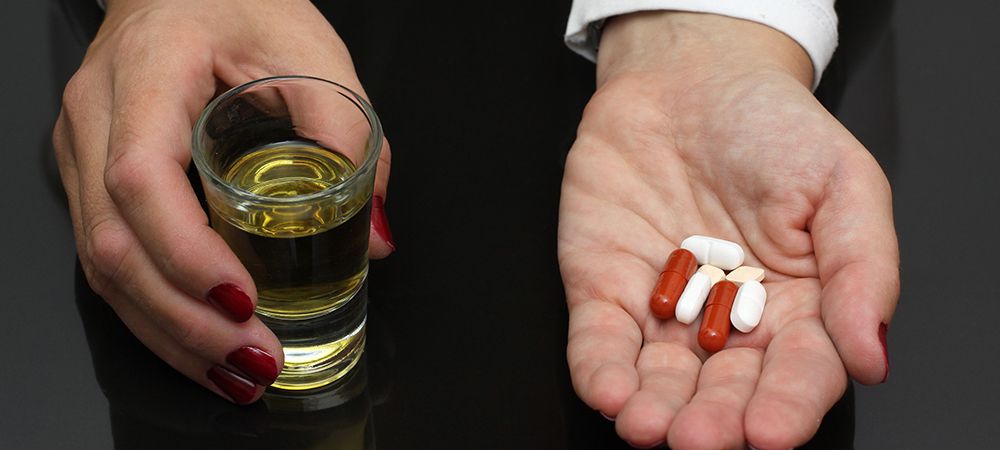
Is Alcohol a Depressant?
Alcohol addiction is a disease that affects people from all walks of life. Experts have tried to pinpoint factors like genetics, sex, race, or socioeconomics that may predispose someone to alcohol addiction. But it has no single cause. Psychological, genetic, and behavioural factors can all contribute to having the disease.
Alcohol addiction can show itself in a variety of ways. The severity of the disease, how often someone drinks, and the alcohol they consume varies from person to person. Some people drink heavily all day, while others binge drink and then stay sober for a while.
Regardless of how the addiction presents itself, someone typically has an alcohol addiction if they rely heavily on drinking and can’t stay sober for an extended period. It is important to note that this is a real disease that can cause changes to the brain and neurochemistry.
Understanding how alcohol affects us is a key to addiction treatment. We know from research that all drugs behave a certain way and are classified accordingly. Some drugs stimulate the brain and some act as depressants. It is critical to know which drugs do what in order to intervene.
What is a Depressant?
Depressants are drugs that slow down the central nervous system and are among the most widely used drugs in the world. They operate by inhibiting neurons, which leads to symptoms such as drowsiness, relaxation, decreased inhibition, sleep, coma, and even death. Many depressants also have the potential to lead to addiction.
While depressants all share the ability to reduce activity in the central nervous system and lower levels of awareness in the brain, there are significant differences among substances within this drug class. Some are safer than others, and several are routinely prescribed for medicinal purposes.
Many depressants work by increasing the activity of the neurotransmitter known as gamma-aminobutyric acid (GABA). Like other neurotransmitters, GABA carries messages from one cell to another. By increasing the amount of GABA, brain activity is reduced, leading to a relaxing effect. This is why taking depressants can result in feelings of drowsiness.
Sometimes called “downers,” these drugs come in multi-coloured tablets and capsules, or in liquid form. Some drugs in this category, such as Zyprexa, Seroquel and Haldol, are known as major tranquillisers, or antipsychotics, as their purpose is to reduce the symptoms of mental illness.
Depressants such as Xanax, Klonopin, Halcion and Librium are often referred to as “benzos” (short for benzodiazepines). Other depressants, such as Amytal, Nembutal and Seconal, are classed as barbiturates—drugs that are used as sedatives and sleeping pills. All of these have the potential to be abused. Therefore, it is essential to seek addiction treatment at the first signs of a substance abuse problem.
What is a Stimulant?
Stimulants are a class of drugs that speed up messages travelling between the brain and body, chemically altering both. They accelerate activity in the central nervous system. Sometimes referred to as “uppers,” these drugs are frequently abused due to their performance-enhancing and euphoric effects. Generally, those who abuse stimulants experience heightened energy levels and enhanced focus.
Because stimulants target key chemicals in the brain, they increase alertness, attention, and energy. This may be helpful for people with certain health conditions, such as attention-deficit hyperactivity disorder (ADHD).
Stimulants include caffeine, nicotine, amphetamines, Ritalin, Adderall, Concerta, methamphetamine, and cocaine. Large doses can cause over-stimulation, resulting in anxiety, panic, seizures, headaches, stomach cramps, aggression, and paranoia. Long-term use of strong stimulants can have significant adverse effects.
Illicit stimulants are usually snorted, swallowed, smoked, or injected. Prescribed stimulants are generally taken orally, and the duration of their effects differs depending on the type. The short-term effects of stimulants include exhaustion, apathy and depression—the “down” that follows the “up”. It is this immediate and lasting exhaustion that quickly leads the stimulant user to want the drug again. Soon the only goal is to get “high”.
Is Alcohol a Depressant or a Stimulant?
Drinking large amounts of alcohol alters an individual’s mood, behaviour, and neuropsychological functioning. For many people, alcohol consumption is a means of relaxation; however, the effects of alcohol and hangovers can induce anxiety and increase stress.
Alcohol is classified as a central nervous system depressant, which slows down brain functioning and neural activity. It is not a stimulant because the classification of a drug is based on the dominant effects. With alcohol, the depressant effects are dominant.
When determining whether a substance is a stimulant or a depressant, doctors look at how it impacts the central nervous system. Stimulants speed up the processes of the central nervous system, depressants slow these processes down. Alcohol is interesting because it does both, speeding up and slowing down the central nervous system at different stages of intoxication. The myth that alcohol is a stimulant began because of its ability to loosen people up and reduce social inhibitions.
Alcohol can depress the central nervous system so much that it results in impairments like slurred speech, unsteady movement, disturbed perceptions, and dulled reactions. It reduces an individual’s ability to think rationally, it lessens inhibitions, and it distorts judgement. If an individual consumes too much alcohol too rapidly, they can depress the central nervous system to the point of respiratory failure, coma, or death.
The Brain on Drugs
Some studies suggest that many people initially drink alcohol to experience stimulation and associated positive effects, but after becoming dependent or developing an addiction, their reason for drinking switches to the anxiety reduction associated with the sedating effects. Drinking slowly is more likely to lead to a desire for more sedating effects, while drinking rapidly increases stimulation of the brain.
Other researchers believe that people who don’t respond to alcohol’s sedating effects as strongly as others are at a heightened risk of developing alcoholism. This is because they consume more to compensate for the fact that they don’t immediately feel anything, increasing their chances of experiencing adverse side effects.
Alcohol overdose, or alcohol poisoning, can cause even more severe depressant effects, including an inability to feel pain, unconsciousness, slow and irregular breathing, cold and clammy blue skin, and possibly even death. These reactions additionally depend on how much an individual consumes and how quickly.
In addition to chemically altering the central nervous system, alcohol also inhibits glutamate, resulting in memory loss and other impaired brain functionality. Alcohol also releases dopamine — the neurotransmitter chemical responsible for pleasure and reward. This causes people to drink even more to increase those good feelings that dopamine produces, leading to an increased risk of addiction.
Treatment
No matter how severe your alcohol addiction, recovery is possible. By talking to one of the experts at Thousand Islands Rehab Centre, you can determine what treatment plan works best for you and your situation. Depending on your individual needs and circumstances, your treatment options may include medication, therapy, life coaching, Indigenous traditional healing, and many other elements. Call us today to get started on your road to recovery.

